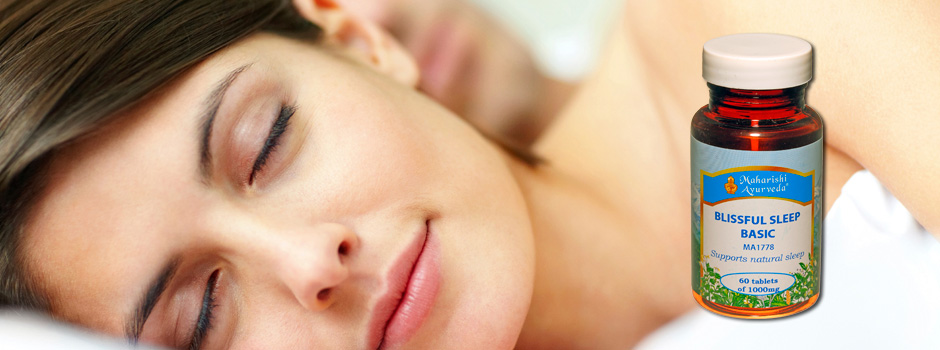Natural cures for insomnia
Edith Sitwell’s somewhat eccentric father, Sir George, is said to have advised visitors to his house never to contradict him, “as it interferes with the functioning of the gastric juices and prevents my sleeping at night.”
Eccentric or not, this was a sound, if extreme, piece of advice. An unsettled digestion is only one of many potential causes of insomnia, and socialising only with people unlikely to disagree with us is not a strategy open to all; but Sir George was right on the button about the importance of sleep.
Sleeping poorly raises the risk of dying from heart disease by almost 50%, and dying from stroke by 15%, according to a study by scientists at the University of Warwick who monitored 470,000 people from eight countries for between 7 and 25 years.
A lack of sleep has been linked to a host of illnesses, including depression, obesity, diabetes and high blood pressure. Sleep is known to be vital for maintaining proper memory and decision-making abilities, and for regulating emotional stability. Without enough sleep, we make mistakes.
Sleep deprivation is implicated in 60% of US road accidents; and is believed to have contributed to major disasters including the oil spillage of Exxon Valdez and the nuclear meltdowns at Chernobyl and Three Mile Island.
Like money, sleep is only really appreciated when we don’t have enough of it. And – again like money – that’s the situation for most Britons. According to 2011’s Great British Sleep Survey, only 39% of people sleep well.
Not surprisingly, Ayurveda describes sleep as one of the three pillars of health, along with food and a balanced life.
And it has a host of guidelines for how to fall asleep easily, how long to sleep, and when to sleep.
In tune with natural rhythms
Ayurvedic experts Dr Hari Sharma and Christopher Clark, authors of several books on the topic (available from the books section of Maharishi Ayurveda Products), remind us of the quote by Henry David Thoreau: “Measure your health by your sympathy with morning and spring.” Both times of fresh beginnings, being in “sympathy” with morning and spring is a hint of how health can actually be improved by attuning our lifestyle to daily and seasonal rhythms – the core of the modern science of chronobiology, and a central feature of Ayurveda for thousands of years.
Daily natural rhythms mean that there’s a good time for sleep, and a bad time. Benjamin Franklin’s “early to bed and early to rise” motto pretty much sums it up. Daytime sleep is not such a nourishing experience; whereas, in the words of Ayurvedic sage Charaka, night sleep is “the nurse of every living being.”
But how early should we go to bed for optimum effect? And how early should we rise?
According to Ayurveda, natural rhythms – described in the same Vata, Pitta, and Kapha categories that classify our individual makeup – identify the best time to go to bed.
Ayurvedic time
Ayurveda divides the day into four-hourly segments, each associated with a different dosha, or natural tendency. For optimum health, our activities in each of those segments should take account of the predominant dosha at that time. 10am till 2pm is characterised by Pitta dosha, for example. Pitta governs metabolism, digestion, transformation; so it’s the ideal time to eat our main meal. 2pm till 6pm is Vata, associated with movement; and 6pm till 10pm is a Kapha time. Now, Kapha has the qualities on heaviness and tranquillity. It’s not a good time to digest a large meal – but it’s the ideal time to go to sleep.
From 10pm till 2am, another cycle of Pitta time takes place. So going to sleep after 10pm, away from the soothing influence of Kapha, is likely to be more difficult, and the sleep of not such good quality.
The other reason to go to bed before 10pm is that, as Sharma and Clark point out, “our hormonal cycles are bioengineered for early rising.” This is mirrored in Ayurveda, which describes the time from 2am to 6am as belonging to Vata – movement – and 6am to 10am characterised by Kapha. Arising after 6am will tend to bring sluggishness into the day. Yet if we want our 7-8 hours sleep, which all studies suggest is ideal, if we get up at 6am, we need to be going to bed no later than 10pm.
Modern science agrees with Ayurveda that optimum sleep is, simply, not too little – and not too much. Researchers at University College London found that either getting too little (less than six hours) or too much sleep (more than eight hours) prematurely aged the brain by up to seven years.
So ideally, sleep from 10 pm until no later than 6am.
Natural ways to fall asleep
There are three main types of sleep problems: difficulty falling asleep; continually waking during the night, and being unable to get back to sleep; and feeling sluggish when awakening.
In the Great British Sleep Survey, difficulty falling asleep was the biggest single type of sleep disorder, experienced by 37% of people. So this week, we’ll look at Ayurvedic recommendations for falling asleep. The 24% of you with other sleep problems will hopefully bear with us till next week for tips on how to resume sleep and how to wake up refreshed – and the last 39% of happy campers won’t be reading this if the first place, of course.
Difficulty falling asleep is associated with an imbalance in Vata dosha, which governs movement. The mind continues to be over-active when we’re seeking calmness and rest, keeping us awake.
Tips to balance Vata, calm your mind and assist sleep
- Favour sweet, sour, and salty foods. Include plenty of soups and sweet, juicy fruits in your diet. Try flavouring your food with fresh lemon or lime juice.
- Use ghee in your cooking to balance the light, restless, moving qualities of Vata.
- Flavour your food with spices such as basil, rosemary, cilantro, parsley, cardamom and nutmeg. Use only enough salt for flavour on your food.
- Eat three warm, freshly-cooked meals at the same time every day.
- Go to bed before 10:00 p.m. and rise by 6:00 a.m.
- Avoid rushed work hurriedly done.
- Do not skip your evening meals; but make them light.
- Massage your hands and feet with Rejuvenation Massage Oil prior to bed.
- Use Sweet Sleep (Nidra) Aroma Oil at bedtime.
- Drink Slumber Time Tea before bed.
- Exercise daily to help the quality of your sleep.
- To reduce stress and worry most effectively, practise Transcendental Meditation twice daily.
Specific Maharishi Ayurveda herbal products can assist with falling asleep; in particular, Peace at Night, Blissful Sleep, and Blissful Sleep – Vata. They contain a synergy of herbs which promote nourishing sleep and – in the case of the second one – also pacify Vata dosha.






